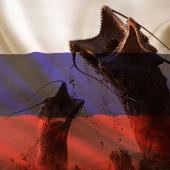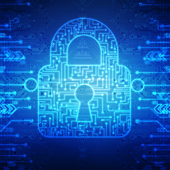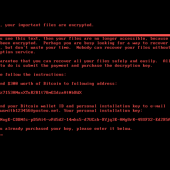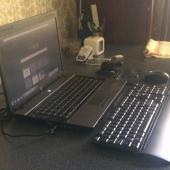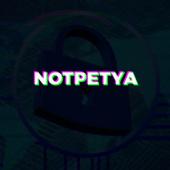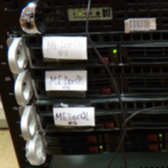-
Microsoft: Fake ransomware targets Ukraine in data-wiping attacks
Microsoft is warning of destructive data-wiping malware disguised as ransomware being used in attacks against multiple organizations in Ukraine.
- January 16, 2022
- 01:32 PM
 3
3
-
The Week in Ransomware - October 23rd 2020 - From Russia with Love
This week has been busy with ransomware related news, including new charges against Russian state-sponsored hackers and numerous attacks against well-known organizations.
- October 23, 2020
- 05:38 PM
 1
1
-
US indicts Russian GRU 'Sandworm' hackers for NotPetya, worldwide attacks
The U.S. Department of Justice has charged six Russian intelligence operatives for hacking operations related to the Pyeongchang Winter Olympics, the 2017 French elections, and the notorious NotPetya ransomware attack.
- October 19, 2020
- 02:42 PM
 1
1
-
The Week in Ransomware - October 12th 2018 - NotPetya, GandCrab, and More
Lots of Scarab, Matrix, and Dharma variants this week as well as some good writeups on the GandCrab ransomware. Also of interest is ESET publishing of their report that ties NotPetya and Industroyer to the TeleBots Group.
- October 12, 2018
- 06:24 PM
 0
0
-
The Week in Ransomware - June 29th 2018 - Slow week!
It has been a very slow week for ransomware, which we are always happy about. While ransomware will never go away completely, as time goes on, more people become educated, and better backup strategies are created, we continue to see ransomware slowly diminishing.
- June 29, 2018
- 06:05 PM
 3
3
-
US Sanctions Russia Over NotPetya Outbreak, Energy Grid Hacks, Election Meddling
The United States has imposed sanctions against Russian entities for the NotPetya ransomware outbreak, cyber-attacks on the US power grid, and their attempts to influence the 2016 US presidential election process.
- March 15, 2018
- 01:37 PM
 2
2
-
All Five Eyes Countries Formally Accuse Russia of Orchestrating NotPetya Attack
All the countries part of the Five Eyes intelligence-sharing alliance — the US, the UK, Canada, Australia, and New Zealand— have made formal statements accusing the Russian Federation of orchestrating the NotPetya ransomware outbreak.
- February 18, 2018
- 05:50 AM
 5
5
-
The Week in Ransomware - February 16th 2018 - NotPetya & Saturn
The biggest news this week is the UK formally attributing NotPetya to Russian attackers. Also if interest this week is the release of the Saturn Ransomware, which has a more organized feel compared to other ransomware distributions currently being distributed
- February 16, 2018
- 04:01 PM
 1
1
-
UK Formally Accuses Russian Military of NotPetya Ransomware Outbreak
The UK has become the first major Western country to formally accuse the Russian military of orchestrating and launching the NotPetya ransomware outbreak.
- February 14, 2018
- 07:55 PM
 8
8
-
Maersk Reinstalled 45,000 PCs and 4,000 Servers to Recover From NotPetya Attack
The world's largest container shipping company —A.P. Møller-Maersk— said it recovered from the NotPetya ransomware incident by reinstalling over 4,000 servers, 45,000 PCs, and 2500 applications over the course of ten days in late June and early July 2017.
- January 25, 2018
- 06:45 AM
 2
2
-
Ukraine Fears Second Ransomware Outbreak as Another Accounting Firm Got Hacked
Ukrainian authorities and businesses are on alert after a local security firm reported that another accounting software maker got hacked and its servers were being used to spread malware.
- August 23, 2017
- 12:11 PM
 1
1
-
Ukraine Police Arrest Man for Spreading NotPetya Ransomware in Tax Evasion Scheme
Ukrainian authorities have arrested a 51-year-old man from Nikopol, Dnipropetrovsk region, on accusations of distributing a version of the NotPetya ransomware.
- August 11, 2017
- 03:45 AM
 0
0
-
The Week in Ransomware - August 4th 2017 - GlobeImposter, NotPetya, and More
It has been a week heavily dominated by GlobeImposter variants being released here and there and smaller ransomware variants with little or no distribution. We also saw news about companies still being affected by the NotPetya attack.
- August 04, 2017
- 06:41 PM
 0
0
-
Ukrainian Firm Facing Legal Action for Damages Caused by NotPetya Ransomware
The Juscutum Attorneys Association, a Ukrainian law firm, is rallying NotPetya victims to join a collective lawsuit against Intellect-Service LLC, the company behind the M.E.Doc accounting software, the point of origin of the NotPetya ransomware outbreak.
- August 03, 2017
- 12:15 AM
 0
0
-
US Pharma Giant "Not yet Producing Bulk Product" Because of NotPetya Outbreak
US pharmaceutics giant Merck was severely affected by the NotPetya ransomware outbreak that took place at the end of June, and the company is still struggling to restore all systems and resume normal operations, according to an 8-K report filed with the US Securities and Exchange Commission (SEC).
- August 01, 2017
- 12:25 PM
 0
0
-
FedEx Says Some Damage From NotPetya Ransomware May Be Permanent
US-based and international courier delivery service FedEx admitted on Monday that some of its systems were significantly affected by the NotPetya ransomware, and some of the damage may be permanent.
- July 18, 2017
- 06:35 AM
 0
0
-
The Week in Ransomware - July 7th 2017 - Decryptors, NotPetya, and Petya
Been a great week for victims, with decryptors coming out for BTCWare, Cryptomix, Executioner, and the release of the original Petya key. Otherwise, it has been a lot of NotPetya news and numerous smaller variants being released.
- July 07, 2017
- 11:01 AM
 2
2
-
Author of Original Petya Ransomware Publishes Master Decryption Key
The author of the original Petya ransomware — a person/group going by the name of Janus Cybercrime Solutions — has released the master decryption key of all past Petya versions.
- July 07, 2017
- 05:37 AM
 0
0
-
M.E.Doc Software Was Backdoored 3 Times, Servers Left Without Updates Since 2013
Servers and infrastructure belonging to Intellect Service, the company behind the M.E.Doc accounting software, were grossly mismanaged, being left without updates since 2013, and getting backdoored on three separate occasions during the past three months.
- July 06, 2017
- 06:33 AM
 0
0
-
NotPetya Group Moves All Their Bitcoin, Posts Proposition on the Dark Web
The person or group behind the NotPetya ransomware has made its first move since the outbreak that took place eight days ago.
- July 05, 2017
- 07:03 AM
 0
0
- 1
- 2
 1
1